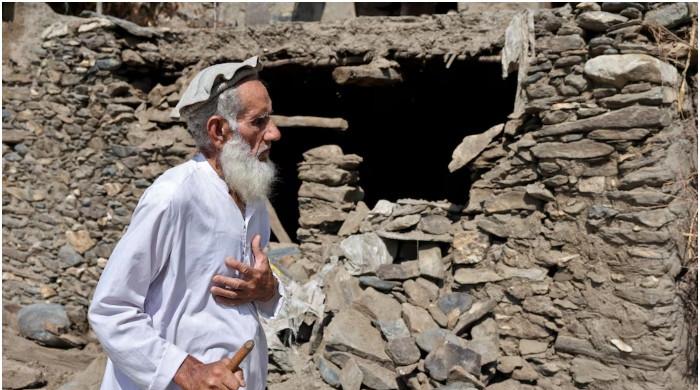- The survivors camp in the open air for fear of aftershocks, lack tents.
- More than 2,200 dead in Calamity, helicopters provide help.
- Afghan children face trauma, disease risks after earthquake.
Attentive for fear that replicas can send rocks that crash from the mountains, survivors of Afghan earthquakes refuse to return to their devastated peoples and camp in fields already along the banks of the river, despite the lack of tents for the shelter.
“We have no refuge, not even a tent,” said farmer Adam Khan, 67, standing outside his house in ruins in the Masud village, in the Eastern Kunar province of Afghanistan, which was flattened by the recent earthquakes. “It rained last night, we had no place to cover. Our greatest fear is the great rocks that could go down at any time.”
Two earthquakes since August 31 have killed more than 2,200 people and wounded more than 3,600 throughout the region, flattening thousands of mud houses and stones. Replicas triggered fresh land landslides, leaving families trapped between unstable mountains and swollen rivers.
Help agencies have flown in food and helicopter supplies, but survivors say the help has been slow and irregular. Many villages remain cut, several hours from the nearest road. Families are now grouped into improvised camps, with little more than their recovered belongings.
“The tents that gave us cannot even accommodate our children,” said farmer Shams-Urhman, who lost six relatives and fled with his nine family. “On the mountain road, I had no shoes for my son, so I shared mine with him when we walked.”
For many, displacement seems permanent. “Even if there is no earthquake, a simple rain could make the rocks crash against us,” said Gul Ahmad, 51, standing next to emerging tents. “We will not return. The government must provide us with a place.”
Humanitarian groups warn that without adequate shelter, sanitation and food, trauma could spread disease and deepen poverty in one of the countries most prone to the earthquake in the world. The children are among the most affected: Sadiq, 12, who survived 11 hours trapped under the rubble, said quietly: “I thought I would die. He felt like the day of the final judgment.”
Meanwhile, in the United Nations, Shannon O’Hara, head of Strategy and Coordination for Ocha Afghanistan, will virtually report the humanitarian response to earthquakes.




